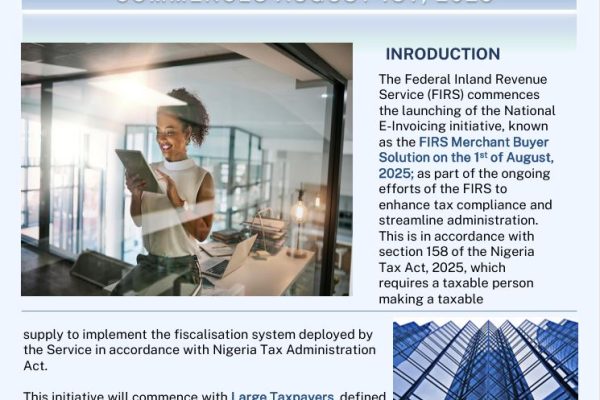10 Tax Management and Planning Tips for Startups and New Businesses
Top 10 Tax Management and Planning Tips for Startups and New Businesses
Starting a new business is an exciting venture, but it also comes with a myriad of responsibilities, including managing and planning for taxes. Proper tax management and planning can not only save your startup money but also ensure compliance with tax regulations. In this blog post, we’ll explore the top 10 tax management and planning tips that every startup and new business owner should consider.

10 TAX MANAGEMENT AND PLANNING TIPS TO CONSIDER
1. Choose the Right Business Structure
The first step in tax management and planning is selecting the appropriate business structure. Your choice—whether a sole proprietorship, partnership, LLC, or corporation—affects how your business income is taxed. For example:
Sole Proprietorships: Taxed on the owner’s personal tax return, simplifying the process but potentially leading to higher personal liability.
LLCs: Offer flexibility in taxation (as sole proprietorships, partnerships, or corporations) and provide limited liability protection.
Corporations: Subject to double taxation (tax on corporate income and dividends) but offer potential tax benefits and liability protection.
Consult a tax advisor to determine which structure aligns with your business goals and offers the best tax advantages.
2. Keep Accurate and Detailed Records
Accurate record-keeping is crucial for effective tax management and planning. Maintain detailed records of all financial transactions, including receipts, invoices, bank statements, and expense reports. Using accounting software can simplify this process and ensure that you capture all deductible expenses. Detailed records not only make tax filing easier but also help you track your financial performance and make informed business decisions.
3. Separate Personal and Business Finances
To avoid confusion and potential tax issues, keep your personal and business finances separate. Open a dedicated business bank account and use it exclusively for business transactions. This separation will make it easier to track business expenses, prepare accurate financial statements, and simplify your tax filing process.
4. Understand and Utilize Tax Deductions
Tax deductions can significantly reduce your taxable income. As a startup or new business, you may be eligible for various deductions, including:
Startup Costs: Deduct certain expenses incurred during the initial phase of your business, such as legal fees, market research, and advertising.
Business Expenses: Claim deductions for operating costs like rent, utilities, supplies, and salaries.
Home Office: If you work from home, you may be eligible for a home office deduction, covering a portion of your rent or mortgage, utilities, and other home-related expenses.
Be sure to keep thorough documentation for all deductions and consult a tax professional to maximize your tax savings.
5. Plan for Estimated Taxes
As a business owner, you are typically required to make quarterly estimated tax payments. Failing to do so can result in penalties and interest. Calculate your estimated tax payments based on your expected annual income and make payments on time to avoid surprises at tax season. Use accounting software or consult with a tax advisor to help you estimate and schedule these payments accurately.
6. Take Advantage of Tax Credits
Tax credits directly reduce the amount of tax you owe and can be more valuable than deductions. Some common tax credits for startups and new businesses include:
Research and Development (R&D) Credit: Available for businesses investing in innovation and technology development.
Work Opportunity Tax Credit (WOTC): Provides incentives for hiring individuals from certain targeted groups.
Energy Efficiency Credits: Available for businesses that invest in energy-efficient equipment or practices.
Research available credits that apply to your business and ensure you meet the eligibility requirements.
7. Plan for Depreciation
Depreciation allows you to deduct the cost of significant business assets over time. This includes equipment, machinery, and vehicles. Understanding how to depreciate assets properly can help you manage cash flow and reduce taxable income. Use the Modified Accelerated Cost Recovery System (MACRS) or consult a tax advisor to determine the best depreciation method for your business.
8. Stay Updated on Tax Laws and Regulations
Tax laws and regulations frequently change, and staying informed is crucial for effective tax management. Subscribe to updates from the IRS, attend industry webinars, or work with a tax professional to keep abreast of changes that could impact your business. Being proactive can help you avoid compliance issues and capitalize on new tax-saving opportunities.
9. Set Up a Retirement Plan
Offering a retirement plan for yourself and your employees can provide significant tax benefits. Contributions to retirement plans such as a 401(k) or a SEP IRA are typically tax-deductible, which can reduce your taxable income. Additionally, providing a retirement plan can help attract and retain top talent. Explore different retirement plan options and choose one that fits your business needs and budget.
10. Consult with a Tax Professional
Navigating tax management and planning can be complex, especially for new businesses. Consulting with a certified public accountant (CPA) or tax advisor can provide valuable insights and help you develop a tax strategy tailored to your business. A tax professional can assist with:
Tax Planning: Developing strategies to minimize your tax liability and optimize your financial situation.
Compliance: Ensuring that you meet all tax obligations and file returns accurately and on time.
Tax Filing: Assisting with the preparation and submission of tax returns, including handling any audits or disputes.
Investing in professional tax advice can save you time, reduce stress, and ultimately save you money.
Effective tax management and planning are essential for the success of any startup or new business. By choosing the right business structure, maintaining accurate records, understanding deductions and credits, and staying informed about tax laws, you can optimize your tax position and ensure compliance. Remember, tax management is an ongoing process, so regularly review your strategies and consult with a tax professional to adapt to changes in your business or tax regulations.
Implementing these top 10 tips of tax management and planning will help you navigate the complexities of tax management and set your business on a path to financial success. If you have any questions or need personalized advice, don’t hesitate to reach out to a qualified tax advisor. Your proactive approach to tax planning will pay dividends in the long run.











